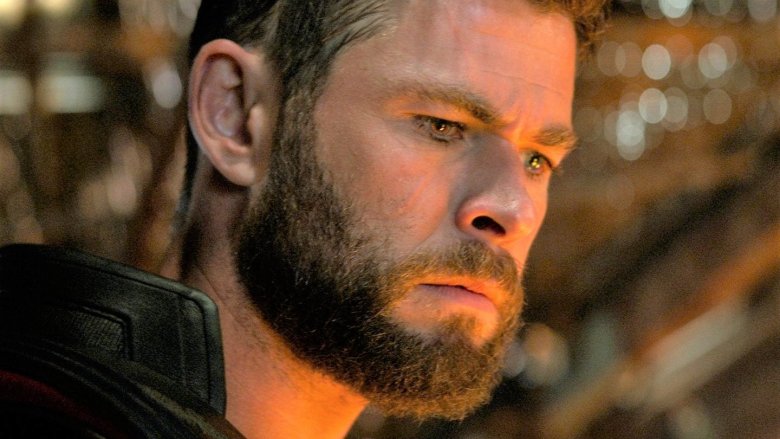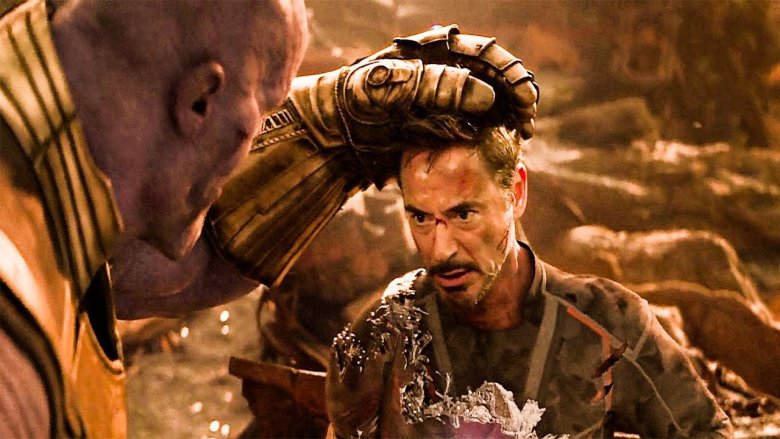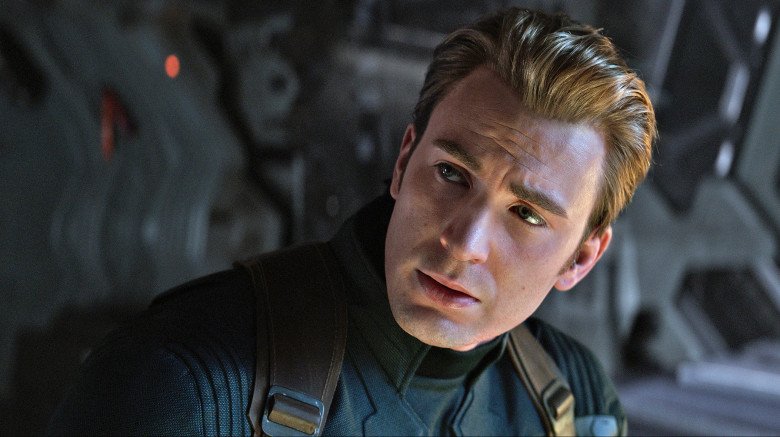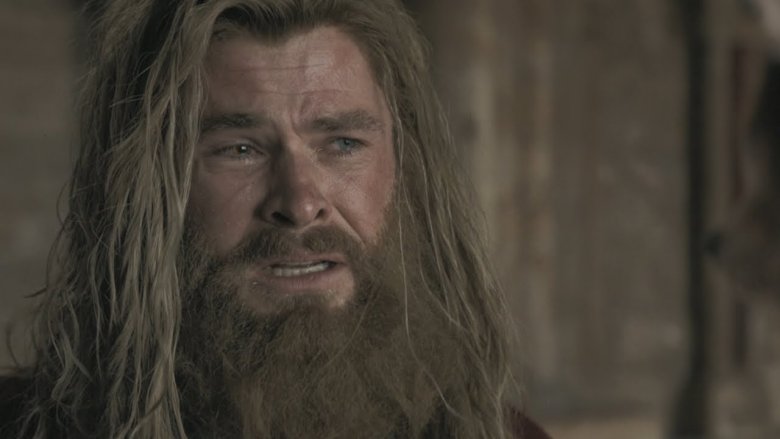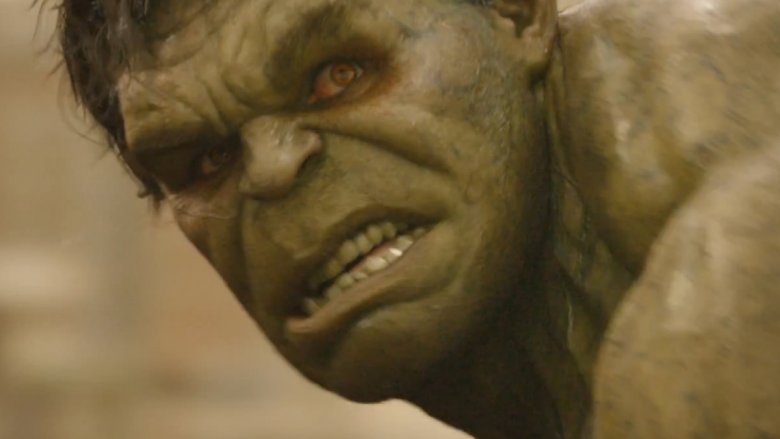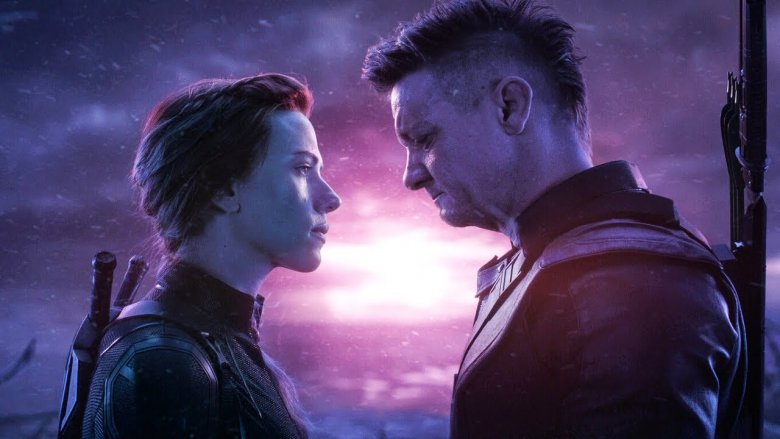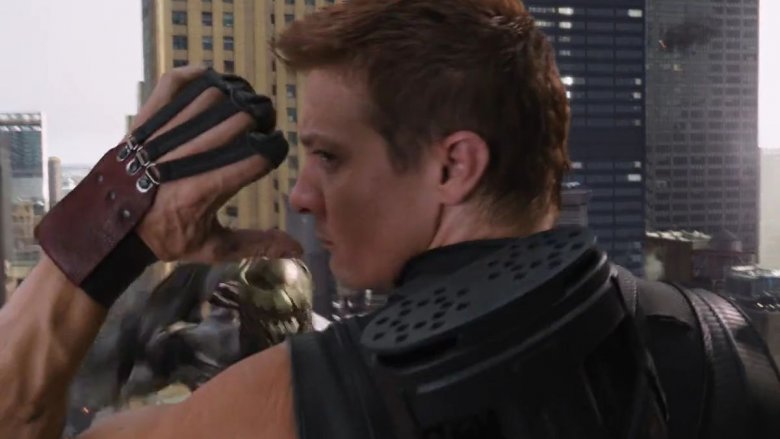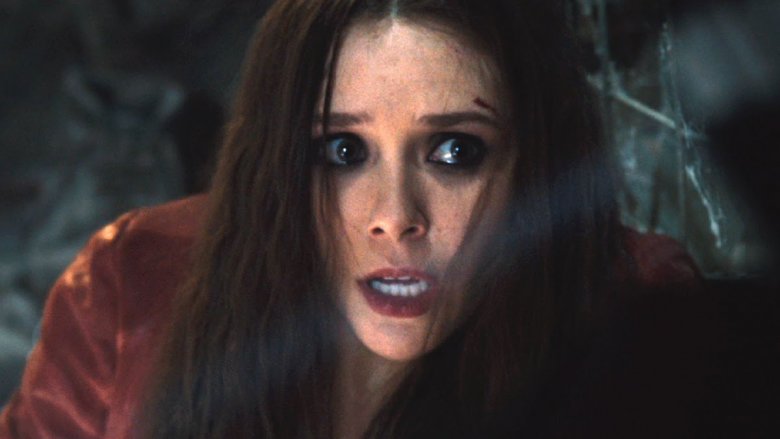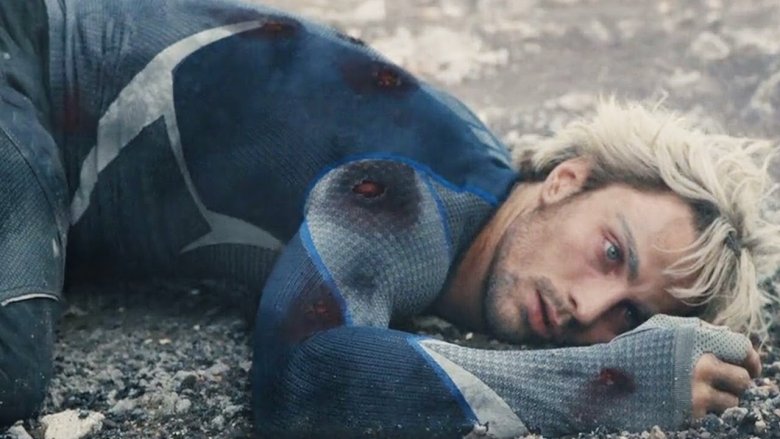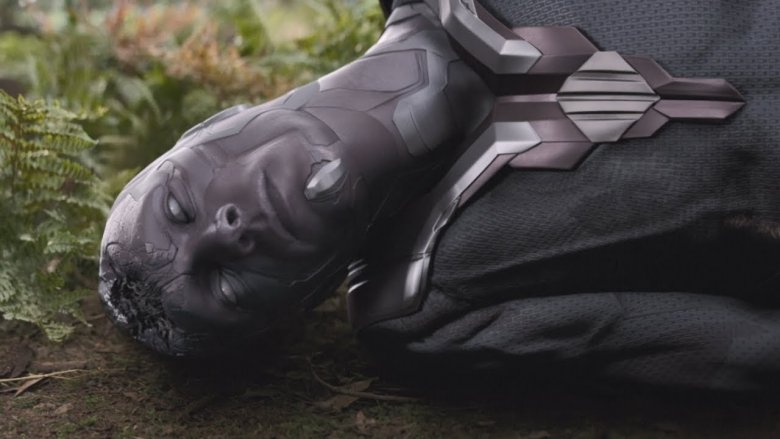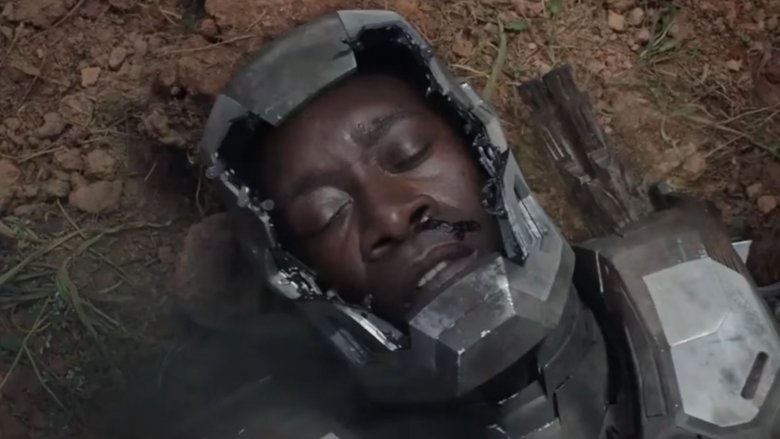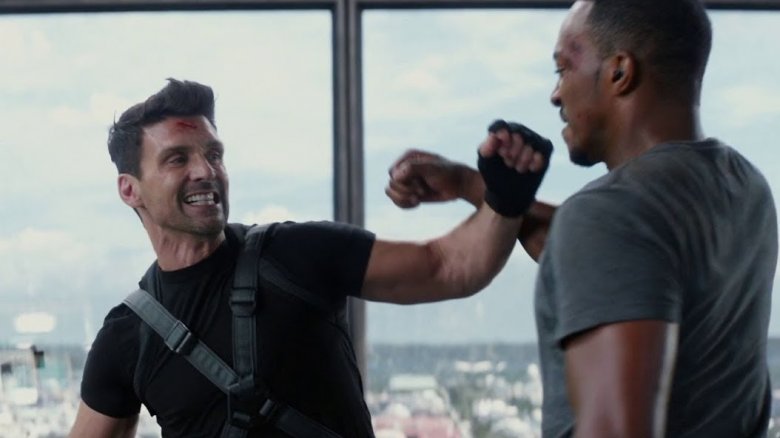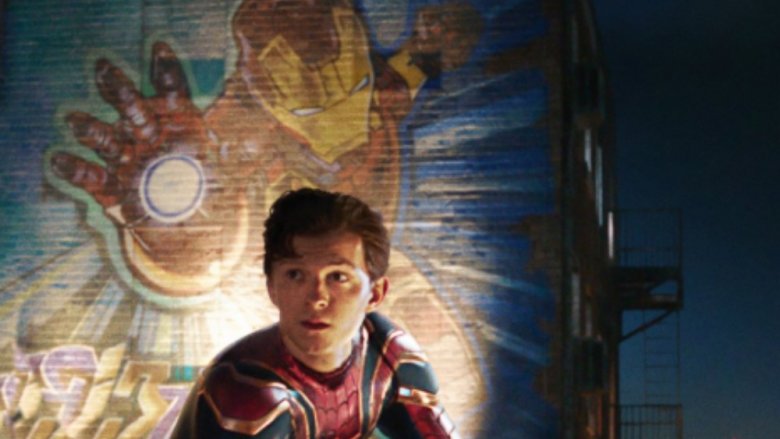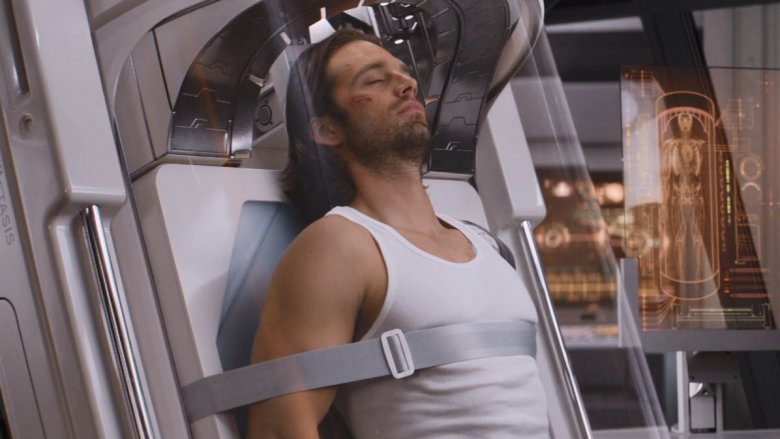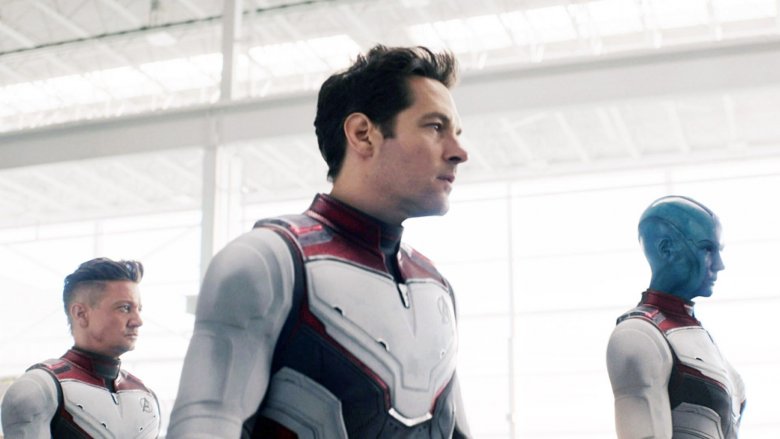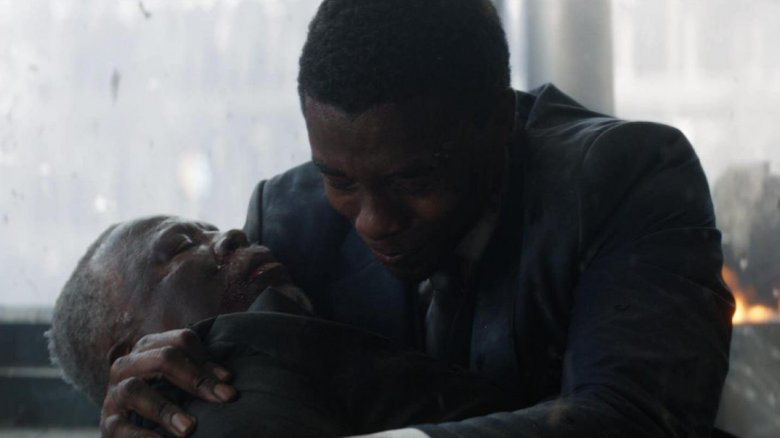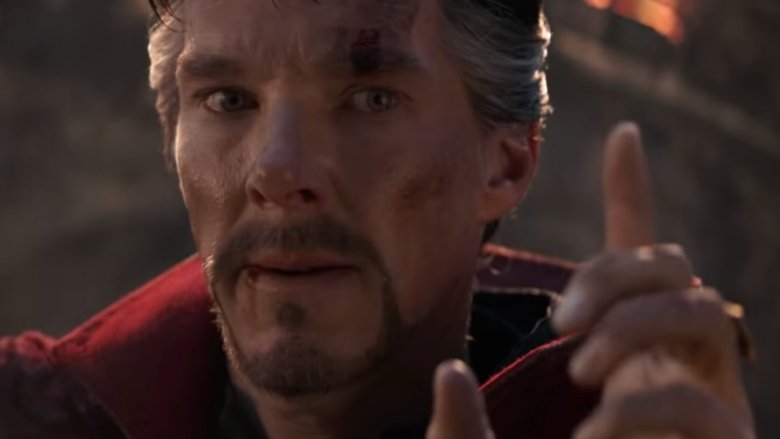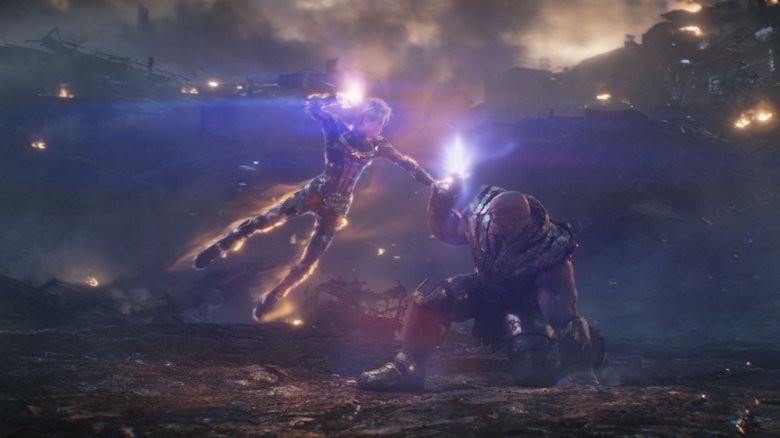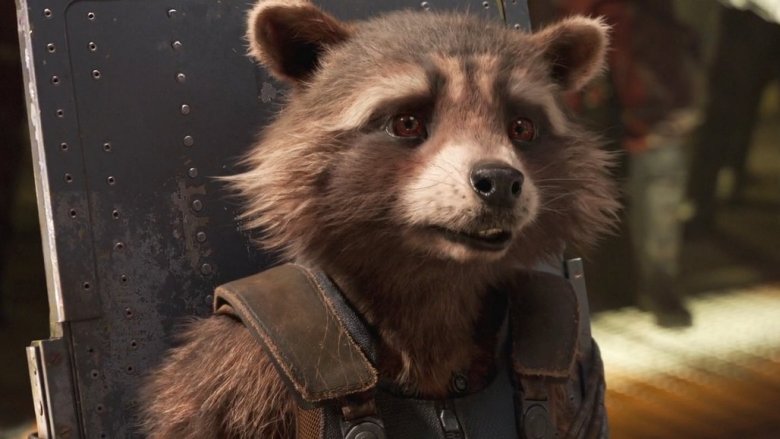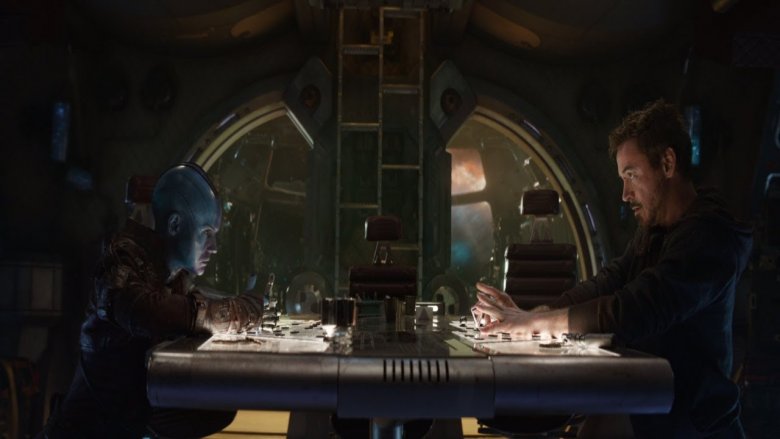The Biggest Weakness Of Every Avengers Member Explained
No one is invincible. Even a man of steel like Superman is vulnerable to things like Kryptonite, magic, or your occasional big, spiky dude. A lot of other superheroes suffer similar vulnerabilities. Green Lantern's powers were once useless against the color yellow. Martian Manhunter has more super powers than most of the rest of the Justice League combined, but if you get him too close to a campfire, he'll freak.
But a hero's weakness isn't always physical. With a few notable exceptions, most members of the MCU's Avengers don't command the same kind of godlike powers as the Justice League's recruits, and their vulnerabilities tend to go deeper than skin. They're overconfident, they're weighed down by feelings of inadequacy, or in some cases, you just don't know whose side they're going to be on from one minute to the next. As much as the team can sometimes work as a well-oiled machine, a villain with the cunning of Loki or Ultron — who knows and can exploit those weaknesses — can break the team down.
Don't believe us? Well, consider the following as we look at the biggest weaknesses of every member of the Avengers.
Iron Man puts everything on his shoulders
Saying that someone's strength can also be their weakness is cliché, but it's cliché because it's true, and the MCU's Iron Man is a perfect example.
Ever since the Battle of New York in 2012's The Avengers, Tony Stark has held the world on his shoulders. When the Chitauri came screaming out of the sky over Manhattan, everything changed for Tony. The knowledge that hostile alien forces were waiting out in the void was too much for him to process without doing something about it.
While this sense of responsibility helps save the world multiple times, including in his final battle in 2019's Avengers: Endgame, it also feeds Stark's biggest failures. It justifies, in his mind, his deception in Avengers: Age of Ultron and leads to the creation of a sentient robot that almost destroys the world. It's also a big part of his motivation to back the Sokovia Accords in Captain America: Civil War, sending him on a collision course with Steve Rogers and leaving the world with a divided Avengers once Thanos comes calling.
Cap is too good for his own good
In U2's "The Fly," Bono sings, "It's no secret that a liar won't believe anyone else." That's because we tend to expect from the world what we expect from ourselves. If you lie all the time, then you probably assume everybody lies all the time, and so you trust no one. It works the other way, too. If you're a selfless and courageous patriot who always demands the best from yourself, then you're probably going to expect the best from everyone around you. And if you're Steve Rogers, you'll be disappointed. A lot.
It's this aspect of Steve that helps start so much trouble in Captain America: Civil War. Of course he doesn't see a need for the Sokovia Accords — he expects the best from everyone around him. He fights so hard, risks so much, and loses so much to protect his old friend Bucky because, in spite of what he knows Bucky has done, he still expects the best from him. It's why the deceptions he endures from Black Widow and Nick Fury, who he knows are spies, somehow come as a surprise to him, and it's why he's able to join S.H.I.E.L.D. without noticing the growing threat of Hydra until Fury is dying on his living room floor.
When Thor falls, he falls hard
Ever since his first big screen appearance in 2011's Thor, the god of thunder struggles with the fact that he just isn't used to being the loser.
The problem with almost always being the most powerful guy in the room is that you might not know what to do once that power can't save you. That's true for Thor as soon as we meet him in his first solo film. He eventually finds the humility to win back Mjolnir and regain his powers, but when he's first made mortal by Odin's decree, all he knows to do is try to recapture the hammer. When he learns he can't lift it, his rage for his father is so consuming that he roars at the sky.
And of course, there's his transformation into the so-called "Bro Thor" in Avengers: Endgame. While Thor does fail to stop Thanos from killing half the universe in Avengers: Infinity War, as Rocket points out, he isn't alone in his failure. Still, Thor lets the weight of everything fall directly on his shoulders. It's what drives him to murder Thanos ... and to fall as low as we've ever seen him.
The Hulk's weakness is that he's unpredictable
One thing that's always been clear about the Hulk in the films and the comics is that his biggest weakness — at least in terms of working with a team — is that you're never really sure exactly which Hulk you're going to be dealing with, and if you get the wrong one, then he's just as likely to smash his teammates as he is to smash the real enemy.
While Loki is doubtlessly using his power and that of the Mind Stone to influence the Hulk when he goes wild on the Helicarrier in The Avengers, the Hulk isn't someone you have to work that hard to manipulate. While the moment is arguably one of the most hilarious of the film, the Hulk shows his willingness to lash out at allies when he sucker punches Thor in Grand Central Station. He's one of four Avengers who are assaulted in a single scene by Scarlet Witch's mental powers in Avengers: Age of Ultron, yet he's the only one who not only attacks one of his teammates because of it but goes on a rampage through Johannesburg. And in Thor: Ragnarok, there are no witches or warlocks playing with his mind when he chooses to attack Thor in Sakaar's arena. Basically, "the other guy" is unpredictable.
Black Widow isn't convinced she deserves forgiveness
As we've seen from Black Widow time and again in the MCU, as much as she fights and sacrifices to redeem herself, a powerful part of her is convinced she's not worth saving. It's what Loki tries to exploit in The Avengers, and it's one of the things that kills her in Avengers: Endgame.
When Loki reveals to Black Widow in The Avengers that the mind-controlled Hawkeye has told him all about Natasha's dark past, he means to manipulate her. Things don't work out exactly as Loki plans, but as we find out later during her conversation with Hawkeye, Black Widow is still shaken by the experience. And yeah, Black Widow is the one who figures out how to close the portal the Chitauri are using to invade Earth, and in Captain America: The Winter Soldier, she's initially Cap's only ally, and it's Nat who releases all of Hydra's secrets on the web, even though it serves to expose her own past. Yet in spite of these heroics, in Avengers: Age of Ultron, she implies she's as much of a monster as the Hulk and calls the notion of her being an Avenger "a dream."
While you could hardly call her sacrifice in Endgame a weakness, it seems likely this viewing of herself as a monster is part of what convinces her that she should be the one to die on Vormir rather than Hawkeye.
Hawkeye is an Avenger limited by his ammo
Hawkeye is one of the few Avengers whose greatest weakness is more on the physical side of things, as he's limited by his ammo.
Without his arrows, Clint is far from helpless. In most of his appearances, we've seen him the equal of many of his fellow Avengers when it comes to hand-to-hand combat. In Captain America: Civil War, we saw him hold his own against both Black Widow and Black Panther with a minimum of trick arrows. But when it comes to the threats that live in world of the super? He needs those weapons, and when he runs out (as we see in The Avengers), he's in a lot of trouble. In Civil War, he would've been absolutely useless against heroes like Iron Man, War Machine, and Spider-Man without his arrows. He was absolutely useless against Vision even with them.
And that's probably why in Avengers: Age of Ultron, we learn he's come up with some creative means to extend his ammo replenishment. When he briefly hides in a building with the shaken Scarlet Witch, we see he's figured out new ways of storing ammo when he detaches something from his boot that produces a score of arrows, all ready for him.
Scarlet Witch needs to work on her confidence
When Scarlet Witch joins the battle against Ultron's drones in Sokovia, that's when we learn her biggest weakness: a lack of confidence. You can hardly blame her for her fear in Age of Ultron, though. Not that long ago, she was on Ultron's side, and she's still pretty new to the superhero business. It takes a pep talk from Hawkeye to get her back on her feet.
However, it happens again in her next appearance in Captain America: Civil War. When Hawkeye shows up to free Wanda from the Avengers Compound, at first it seems like she'd rather stay, and that she believes she's dangerous enough to warrant the house arrest Tony Stark has her under. Once more, Clint has to make her face some hard truths before she takes action. This time, his pep talk is interrupted by Vision, and luckily for Clint, his words work, and Wanda incapacitates the android long enough for the rebel heroes to escape.
Since the death of Vision in Infinity War and her one-sided showdown with Thanos in Endgame, Wanda's lack of confidence may be less of an issue. We'll have to wait and see.
Quicksilver was an angry Avenger
Unfortunately, Quicksilver didn't live long enough to get an extended look at what he would've been like as an Avenger, but during his time in Age of Ultron, it's clear the speedster was usually governed by one thing: his rage.
It's Pietro's anger at Tony Stark that pits him against the Avengers, and it's eventually what puts him in Ultron's camp. We see that fury start to boil up a couple of times in the fight in the belly of Ulysses Klaue's Churchill — first against Captain America after Cap tells him to "stay down," and then against Hawkeye when the archer incapacitates Wanda.
In the comics, Quicksilver's anger leads him to actually betray the Avengers a number of times. We'll never know if the same would've been true in the films. By the time he's switched sides, he's seemed to mellowed at least a little, considering not only his sacrifice to save Hawkeye and a young Sokovian boy, but that earlier in the fight, he's willing to take a little friendly fire in the arm from a Sokovian cop without punching him in the throat for it.
Vision relied on the Mind Stone
Tony Stark says Vision might become the most powerful of the Avengers before the android comes to life in Age of Ultron. With both Hulk and Thor absent, Vision's entrance to the airport battle in Berlin certainly makes him seem like the most powerful hero there. But in the end, the Mind Stone that was the key to bringing him to life proves his undoing in more ways than one.
First, there's the obvious way. In spite of Shuri's interrupted attempt to separate the stone from Vision safely, when Thanos rips the gem from the android's head in Infinity War, it kills Vision instantly. Since he isn't one of the victims of Thanos' fateful snap, his death isn't reversed in Endgame.
But we see some other ways Vision's reliance on the Mind Stone makes him vulnerable earlier in Civil War. The fact that Wanda's powers come from the Mind Stone is what allows her to overpower Vision when Hawkeye comes to rescue her from house arrest. Later, at the end of the airport battle in Leipzig, his overreliance on the stone, plus his worry for Wanda's injuries, force him to miss his target and blast War Machine, nearly killing him.
War Machine is just a man in a can
While James Rhodes' years in the War Machine suit have made him an accomplished Avenger, there's at least one way in which he'll never be Iron Man's equal. He may have a similar suit, but he doesn't have the mind that created them.
Rhodey's skills are nothing to sneeze at, even without the suit. As we see in Iron Man 3, before he's able to retrieve the Iron Patriot armor from President Ellis, Rhodey's cunning, courage, and marksmanship help him survive fights with multiple Extremis-fueled bad guys. The problem is that when Rhodey's in the suit, and the suit fails him, he doesn't have the technical know-how to compensate.
For example, there's his fall in Civil War. Tony Stark finds himself in a similar situation in Iron Man when his push towards the upper atmosphere freezes his suit and causes it to temporarily lose power. Because Tony is an engineer and he knows what the suit can do, he's able to get the armor working again before he's a skidmark. Rhodey doesn't have the same capacity. When Vision accidentally blasts him in Civil War and he falls, he doesn't have the same engineering genius as Stark, and his fate is sealed.
Falcon needs some practice
Ever since he was introduced in Captain America: The Winter Soldier, Falcon has proven himself to be a fierce fighter. In Civil War, he goes toe-to-toe with Avengers like Iron Man and War Machine, and he makes short work of Crossbones' mercenaries. Then in Endgame, he takes down alien monsters twice his size.
But without his wings? Well, Sam Wilson is still an accomplished professional soldier whether he can take to the sky or not, but from what we've seen of him so far, his hand-to-hand skills need some work. He isn't much help against the Winter Soldier without his wings, and in his clash with Brock Rumlow in the Triskelion, the villain says it best when he tells Wilson that he's out of his depth. While he could probably knock your average person on their butt, without his wings he can barely keep up with Rumlow. Ironically, while Nick Fury has to show up and save him, the Helicarrier that crashes into the Triskelion and buries Rumlow may very well have saved Sam's life.
Spider-Man needs to get out from Tony's shadow
In some ways, when Tony Stark barged into Peter Parker's life in Civil War, it was a gift. In other ways, it's been a burden. While Stark helps to enable Peter to become the best hero he can be, he also imposes a large shadow over Spider-Man's life that the younger hero constantly feels pressured to live up to.
He wants to do nothing but impress Stark in Civil War. Later, in Spider-Man: Homecoming, Peter is desperate to keep Tony's attention so he can prove he's worthy of being an Avenger. In Spider-Man: Far From Home, after Iron Man's death, Peter feels the responsibility to fill the void Tony left behind.
It's this drive to live up to the legend of Iron Man that leads him to make some questionable decisions. It pushes him to do a lot more than "web 'em up" and keep his distance like Tony tells him in Civil War. It gets him in a number of fights that don't end well in Homecoming, like the ATM robbery that destroys one of his favorite shops in Queens and nearly kills the owner (and his kitty). It drives him to intervene in the arms sale that leads to the Staten Island Ferry being blasted in half. And in Far From Home, his feelings of inadequacy in comparison to Stark make him an easy target for Quentin Beck's manipulations.
Bucky's weakness is that he doesn't trust himself
Imagine the level of distrust you must have toward yourself to not only insist you be stored in cryo-freeze, but to agree that your caretaker will be the guy who — until a few days ago — blamed you for his father's death. That's the situation in which Bucky finds himself in the mid-credits scene of Civil War.
Bucky doesn't trust himself and with good reason. In spite of being free of Hydra's control and living incognito for two years, a man he's never met is able to find the code that unlocks the brainwashed assassin living in his brain and unleashes him on innocents. We don't even know if Shuri or anyone else in Wakanda was able to cure Bucky of his Hydra conditioning, as it hasn't been mentioned since Civil War.
Not counting his cameo in Black Panther's post-credits scene, we've only seen Bucky in action twice since he was re-frozen — in the last two Avengers flicks. In both, his appearances were brief and were mainly part of battles with huge opposing armies. What's going to happen when Bucky has to deal with a smaller-scale, domestic situation? Is he going to be able to trust himself knowing the damage he's capable of?
Ant-Man doesn't feel comfortable with the Avengers
Scott Lang has a massive inferiority complex when it comes to other, more experienced superheroes. We see it as early as his first appearance in Ant-Man when he fights Falcon. In Civil War, we don't see much interaction between him and the other heroes before the fight in Leipzig, but what we do see makes it clear that he's utterly starstruck by Captain America.
We see the feelings of inferiority most clearly in Endgame. So do his teammates, and they enjoy torturing him because of it. Characters like Iron Man, Nebula, War Machine, and Rocket love to pick on him. And even though everyone else seems to be embarrassed to even be in the same room as the diminished "Bro" Thor, when the thunder god talks, Scott grins and nods like a little kid listening to his favorite baseball player tell a story.
What's so sad about it is how often Scott proves himself equal to his teammates. He kicks Falcon's butt in Ant-Man, does some serious damage in Civil War, and he's one of the most pivotal heroes in Endgame regardless of how the other Avengers talk to him. He's the one who comes up with the idea of using the Quantum Realm to travel through time, he saves a number of Avengers from drowning when Thanos attacks, and during the final battle, he takes out a Chitauri Leviathan by punching it in the face, and he kills Cull Obsidian by stepping on him. So come on, Avengers, give this guy a break.
Black Panther's family means more to him than anything
Caring about your family should hardly be seen as a weakness — or at least primarily as a weakness — but the sad truth is when you want Black Panther to make mistakes, the clear route seems to be to attack his family.
The first big mistake we see T'Challa make is when he dedicates himself to killing Bucky in Civil War. The reason, of course, is because he believes Bucky planted the bomb that killed his father, although we eventually learn it was Zemo in disguise who framed the Winter Soldier for it. T'Challa fails in his quest for revenge, but it's not for lack of trying.
In Black Panther, Killmonger's initial victory over T'Challa at Warrior Falls is only possible because of the very notion of family. Whether Killmonger was secretly royalty or not, it wouldn't have taken much for T'Challa to refuse the challenge of a stranger who just wandered into Wakanda without losing face. But the revelation that T'Challa's father killed his own brother and abandoned the young Killmonger in America leads Black Panther to make the bad choice of accepting Killmonger's challenge, which ends with an epic beatdown.
Doctor Strange's weakness is that he keeps his own counsel
Some may argue the point — the sorcerer himself would probably take issue with it — but Stephen Strange's penchant for keeping his own counsel is something that's bound to betray him one of these days.
Strange makes a lot of pivotal decisions that seem inexplicable to his allies, and more often than not, he does it without bothering to explain himself. In Doctor Strange, Mordo and Wong both think he's abandoned them when he actually has a plan to trick Dormammu. In Infinity War, in spite of warning Tony beforehand that he'd let anyone die before giving up the Time Stone, he surrenders the Eye of Agamotto to Thanos without letting anyone else in on the reason why, simply telling Stark, "It was the only way."
Of course, in those instances, things ultimately worked out ... but not without cost. The Avengers were left dumbfounded for years about his decision on Titan. And things haven't always worked out. For example, when he transports himself, Mordo, Kaecillius, and some evil minions into the Mirror Dimension in Doctor Strange, he makes things worse. He puts himself and Mordo in more danger than before, and while they eventually escape, it ultimately leads to the death of the Ancient One.
Captain Marvel is overconfident
We haven't seen Captain Marvel's confidence backfire on her yet, but it's a good bet we're bound to.
In the beginning of Endgame, Carol Danvers is convinced that the only reason the Avengers weren't able to defeat Thanos is because she wasn't with them. Her comments rub the Avengers the wrong way, but she doesn't back down. It seems likely that confidence, in part, is what helps keep her a loner. Perhaps one of the biggest differences between the Carol Danvers of the comics and the screen is that, so far, the Captain Marvel of the MCU doesn't seem like much of a team player.
When she returns to Earth at the end of the movie, she gets some more fuel to her confidence. Thanos' strongest blow barely fazes her, and he's only able to throw her aside because of the Infinity Stones. From what little we've seen of her interacting with other heroes, she doesn't seem to like asking for help. Eventually, that's going to get her into trouble.
Rocket was mistaken for a build-a-bear
Rocket has some fairly significant character flaws. He's rude, he pushes people away, and he's got an ego the size of Ego's planet. But at the end of the day, Rocket's biggest weakness is simply that he's small.
Rocket can be a terrible opponent. He takes on almost all of Yondu's Ravagers in Guardians of the Galaxy Vol. 2 by himself. He's a terror with a gun in his hand, and give him the right tools and materials, he can make you a high-tech super weapon faster than you can say "MacGyver."
But catch him without a gun, a high-tech gadget, or at the controls of a spaceship? He's helpless. When he attacks Ronan at the end of Guardians of the Galaxy, enraged at Groot's death, the Kree barely has to even move to knock Rocket into next week. He's almost completely useless against Gamora early in the movie when they're fighting over Quill. We wouldn't want to make him mad if there's so much as a butter knife nearby, but Marvel's favorite trash panda is, in the end, the size of a build-a-bear, and it can be huge disadvantage.
Nebula is just learning how to work in a team
Shortly after Endgame opens, we find Nebula playing paper football with Tony Stark on board the Benatar. When she shakes Tony's hand after her victory, this is about the most cordial and social we've seen Nebula in the four movies in which she's appeared so far.
Like Gamora, Nebula has spent most of her adult life as an assassin under Thanos' thumb. Now that she's free of him, she's going to find herself in something of a new life, and a lot of it will be challenging. When Quill comments on how bad Nebula is at lying in Guardians of the Galaxy Vol. 2, it's more than a joke. Of course she's bad at lying. She's spent her whole life outside anything approaching a normal social situation.
Assuming Nebula is planning on becoming a regular member of the Guardians, she'll likely find it difficult to figure out how or who to be. When she reached out to shake Tony's hand in Endgame, she practically looked like a starving dog trying to decide whether or not a concerned human handing her food was trustworthy or not.
